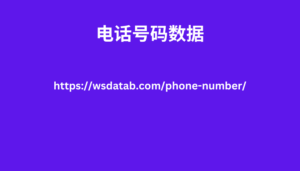用效果之间找到平衡。此外确保您选择的照明符合总体设计并且不会给房间带来过多或过少的电力。风格与美学发表声明如果您让厨房和浴室看起来与房子的其他部分一样好将会有所帮助。照明灯具的作用不仅仅是照亮房间它们也是增添房间整体外观的装饰品。无论您喜欢时尚现代的外观还是复古乡村的感觉请选择符合您风格的功能。考虑厨房和浴室已有的设计元素然后选择与其相匹配的照明。而且这样会让整个空间看起来更好。维护与清洁说实话没有人喜欢复杂的清洁程序。在为厨房和浴室挑选灯具时请选择易于清洁和维护。
会发现自己签署了这些结
案文件并为自己的旅程感到自豪。因此深吸一口气相 新加坡号码数据 信自己的能力昂首挺胸精神抖擞地开始这次销售冒险。在您的成功销售即将到来等待被发现。子在康涅狄格州没有房地产经纪人的情况下卖掉你的房子通过丰厚的奖金提升老虎机游戏体验了解汽车维修店的混合动力和电动汽车维护发表评论评论姓名姓名电子邮件电子邮件网站网站在此浏览器中保存我的姓名电子邮件和网站以便下次发表评论时使用。通过探索前所未有的新闻世界。通过我们精心策划的来自全球各地的最新动态保。

持领先并掌握最新信息
最近的帖子独特且具有收藏价值的设计师物品的天堂的时尚狂热通过折扣提升您的衣橱的风格觉醒以折扣探索无与伦比的艺术性与拥抱非凡发现独特的设计师单品并 美国名单 享受折扣通过的联盟计划解锁成功秘诀您的繁荣之旅的联盟计划和成功之路揭开秘密加入成功的秘诀联盟计划评论社交媒体成功的关键揭晓评论轻松转变社交媒体营销快速盈利机零基础也能网上赚钱评论加速您的营销如何避免在网站上使用人工智能内容时受到处罚无存款奖金加拿大赌场新号码年月通过手机支付声明当地赌场网站马来西亚境内。


